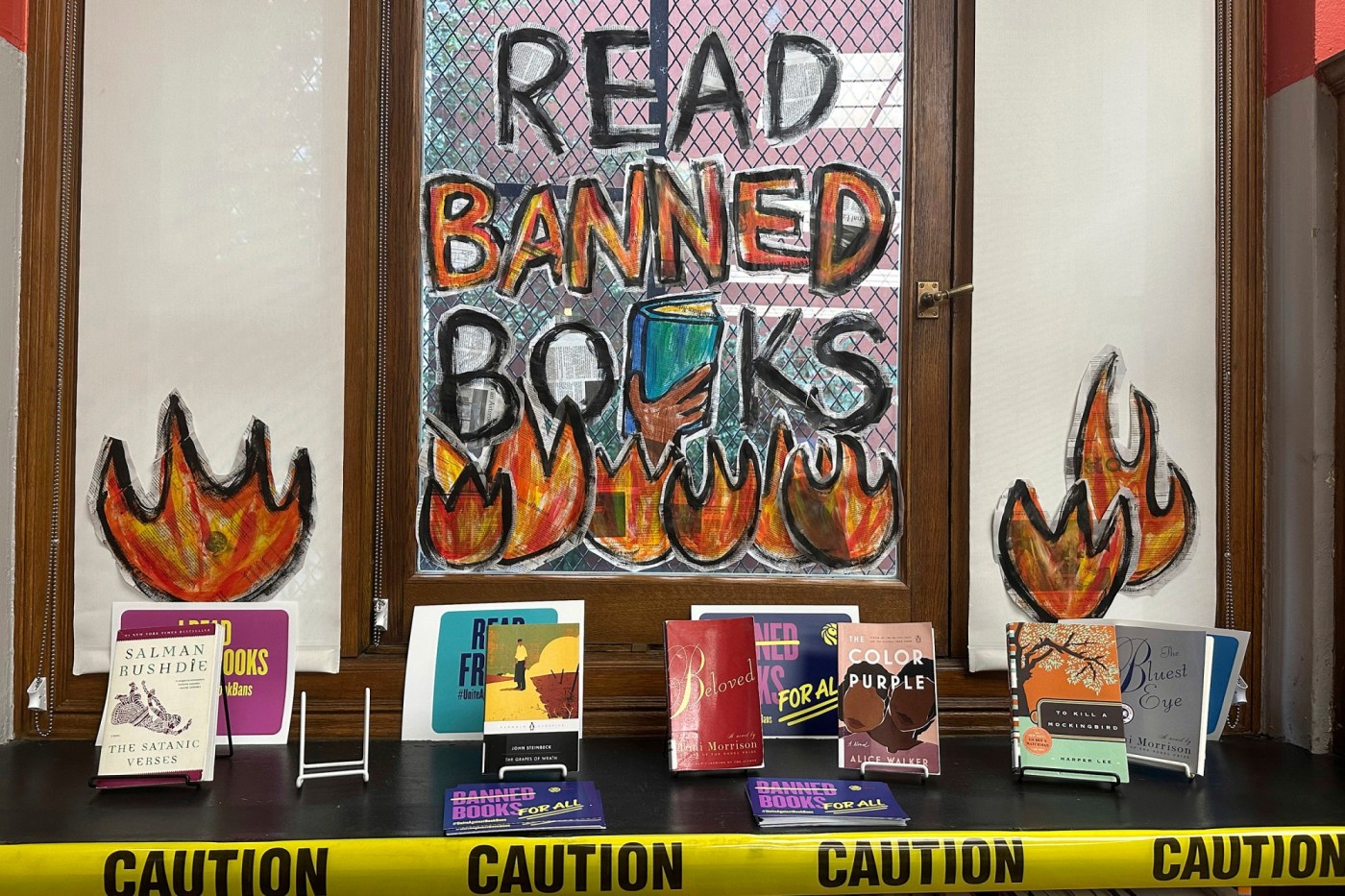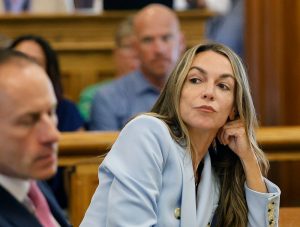
Banned Books Week 2024: Here’s what readers should know
The library is always there to help.
That’s especially true during Banned Books Week, which kicked off on Sept. 22. The yearly event not only celebrates the free access of ideas, but it also highlights the increasing efforts to ban books – especially targeting titles featuring characters or written by authors who are LGBTQ+ and BIPOC.
This year’s honorary chair is filmmaker Ava DuVernay and its youth honorary chair is Julia Garnett, a Tennessee student and a leader in the National Coalition Against Censorship’s Student Advocates for Speech program who has fought book bans in her home state.
This week, I got on the phone with Cindy Hohl, the president of the American Library Association, to talk about Banned Books Week and more.
“Banned Books Week has been going on for more than 40 years now, and it’s an opportunity for us to bring awareness to the attempts to remove books and materials from libraries, schools and bookstores,” says Hohl. “Even bookstores are being told what they can stock and what should be available to consumers. So this year’s theme for Banned Books Week is ‘Freed Between the Lines,’ and it’s an observance of the freedom we find in the pages of books. And as librarians, we are here to defend that freedom from censorship.”
Librarians’ jobs are more complex and challenging than most of us realize, so I asked Hohl how librarians are dealing the surge in book banning.
“Our goal is to always put books into the hands of readers,” she says. “One of the beauties of being an American is that, should you pick up a book and you don’t enjoy the content, you can certainly place that book down and pick up another one.
“First Amendment rights are for everyone – for youth, for adults. We want to make sure that everyone knows that the public library space and public school libraries are also there for their students, so that everyone has an equal opportunity to access information.”
These attempts to block the availability to books and information are counter to the library’s mission, she says.
“We are public servants, and we go into this work to serve the public good. And so we want to make sure that everyone has the information they need to make informed decisions. We believe that is every American’s right. You have a right to choose what information you want to read, write, listen to, access – both in print and online.
“But you know, we don’t have the right to tell our neighbors what they should read or listen to. That’s really up to them to make those decisions. We absolutely have the right to make those decisions for ourselves and for our families, but it becomes problematic when anyone wants to say that they know what’s best for you, for the rest of the community, that they want voices silenced. And so the role of the information professional is really here to help everyone access the information, and to do so in a way that is supportive in its understanding, and we absolutely hope everyone uses the library.”
And should someone have questions about a particular book, she says librarians are there to help.
“If someone has a concern, we hope that they’ll come in and talk to us and we can have that discussion together. If there is a form already in place, we’ll help you fill it out. If you’re at home and you’re chatting with a librarian online, we’ll link you to the policy. We absolutely are here to help our community access information, whatever that may be,” says Hohl.
Hohl also had suggestions for what readers can do during Banned Books Week.
“Go to the library and check out a book. If you can’t go to the library, check one out online. Make sure that you share your love of reading, of literacy, of libraries. Do a shout-out to your favorite librarian. Do a shout-out to your favorite school library. Make a donation if you can, do what you can to help support readership in America, because an educated society is one that we should all want to live in.”
During our conversation, I mentioned to Hohl that one of my favorite parts of this newsletter is when we ask authors about someone – a librarian, a teacher, a parent or relative – who inspired their love of books and reading. It’s the best.
“I love that,” says Hohl, who is a member of the Santee Sioux Nation of Nebraska. “Let me add mine to yours.”
And this is what she told me:
“When I was little, I grew up on a reservation, our village in Nebraska, and several nights of the week, we would all sit around in a circle outside, and our elders would tell us stories. And those are traditions of our people. Those are gifts to our people, hearing those stories.
“In an oral storytelling tradition, you live for those moments to be a part of that community. When we moved to the city, it was a very different experience because I was no longer surrounded by everyone I was related to, and one of the first things we did was our mom walked us over to the public library.
“It was the first time we’d been in one. It was amazing that you could sit down and read any one of these books, and it was amazing that you could actually check them out and take them home. I distinctly remember the colorful room where we went to storytime, and I thought it was such an amazing place,” she says. “Even though everything there was different, it was still the same. So back home, our stories lived in our hearts; and in the city, they became alive in our hands as we held the book. And so that’s really the love of storytelling that I’ve held throughout my entire life.”
She added a note in the language of her ancestors, “‘Yawa wiconi,’” she says, “means, ‘Reading is life.’”
For more information, go to the ala.org or bannedbooksweek.org


